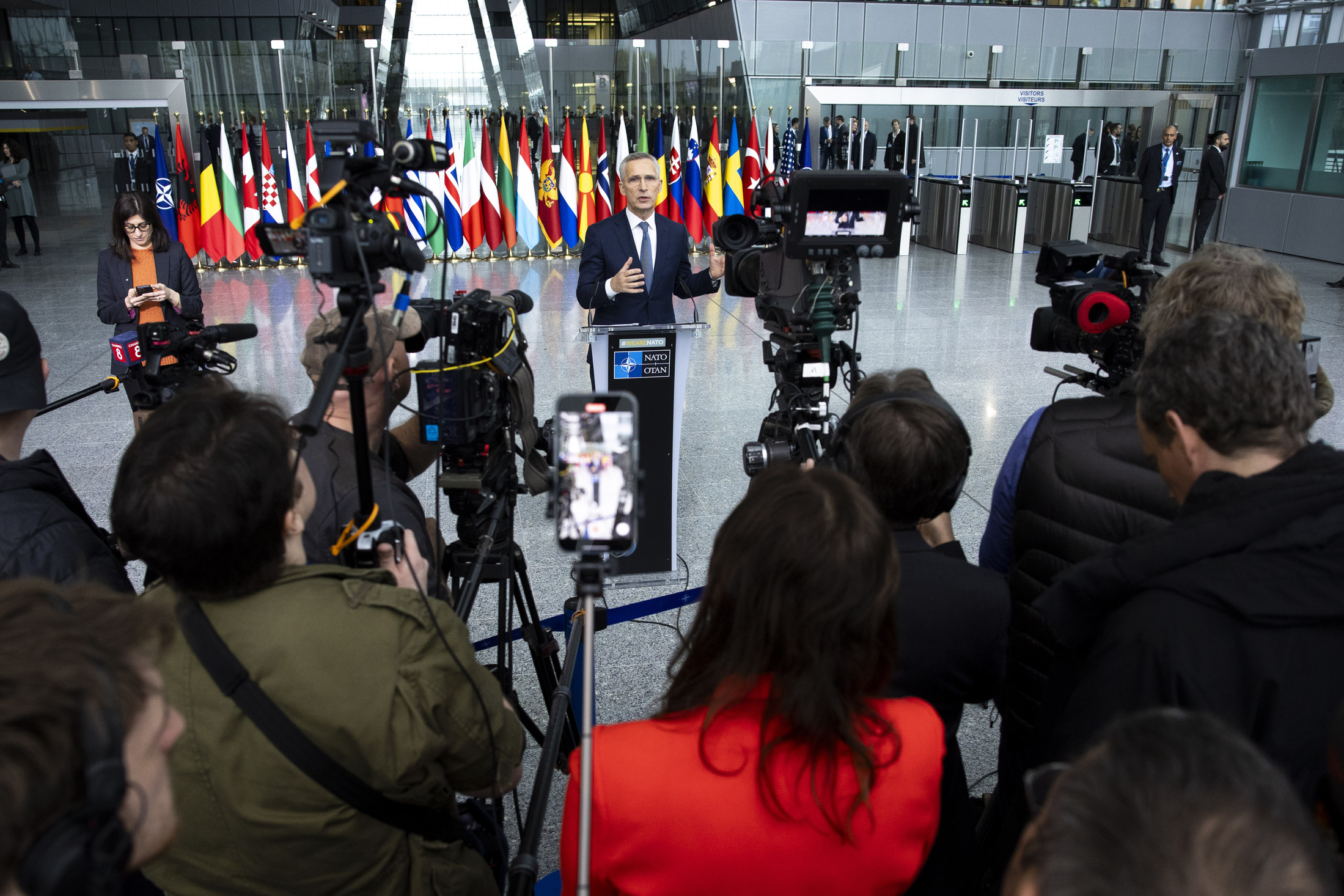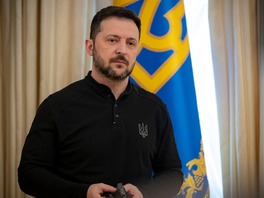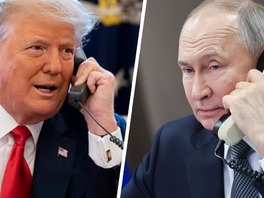The NATO foreign affairs heads convened in Brussels on April 3-4, commemorating the 75th anniversary of the alliance's establishment. Central to discussions was bolstering support for Ukraine. NATO aims to create a sustained assistance plan for Kyiv, less reliant on individual state generosity. This ambitious program, valued at around 100 billion euros, may span five years. "Apostrophe" provides insights from the ministerial meeting right from Brussels.
The North Atlantic Alliance, established on April 4, 1949, in Washington, is currently marking its 75th anniversary in Brussels, home to NATO headquarters. The city's historic center, frequented by tourists, reflected the impending celebrations. Notably, on April 2, the iconic Petit Julien was adorned with NATO symbols. These decorations remained until approximately 6:00 p.m., after which they were taken down, including the "wind rose" display.
The centerpiece of the anniversary festivities was the gathering of foreign affairs heads from NATO member nations, held on April 3-4 at the organization's headquarters. Notably, representatives from Sweden, a recent addition to the Alliance, participated for the first time. Nevertheless, the primary focus of discussions revolved around bolstering support for Ukraine.
Anticipation of the ‘Ukrainian issue’ taking center stage was evident beforehand. Media reports revealed NATO's plans for a substantial support program for Ukraine, potentially reaching $100 billion, contingent upon ‘political changes’ like a second term for Donald Trump. Concerns persist that aid to Ukraine may cease entirely if Trump reclaims the US presidency. Furthermore, NATO aims to assert control over the Ramstein coalition, spearheaded by Washington, which supports Ukraine.
During the Doorstep, NATO Secretary General Jens Stoltenberg affirmed that these matters would be on the agenda at the ministerial meeting. Stoltenberg emphasized Ukraine's pressing requirements, stating, ‘Ukraine has urgent needs. Any delay in providing support has consequences on the battlefield as we speak. So we need to shift the dynamics of our support. So that we rely less on voluntary contributions and more on NATO commitments.’
In response to journalists' inquiries, the Alliance's Secretary General neither confirmed nor denied the potential $100 billion figure nor decisions regarding the re-subordination of the Ramstein coalition. Such determinations, he indicated, would be addressed during the meeting.
‘I don't want to go into any details. I don't know whether the final decisions will be made at today's meeting or at tomorrow's meeting, but we hope that we will move towards a consensus, and towards the summit (the NATO summit that will be held in Washington on July 9-11, 2024, - Apostrophe) we will have an agreement,’ explained Stoltenberg.
According to personal sources at NATO headquarters disclosed to "Apostrophe," the focus is on the Alliance's enduring commitments to aid Ukraine, regardless of shifts in political sentiments within member countries. This strategy aims to safeguard Kyiv from potential repercussions should Donald Trump return to the US presidency.
Anticipated is the creation of a support fund for Ukraine, approximated at 100 billion euros, to be allocated over the next five years. Should control over the Ramstein group also transition under NATO's auspices, the Alliance's role in supporting Ukraine would significantly amplify.
The decisions in question necessitate unanimous support from all NATO members. Notably, Hungarian representatives have voiced reluctance to allocate funds for Ukrainian aid, citing concerns over potential entanglement in the Russian-Ukrainian conflict. Resolving this issue remains unclear. Following the April 3 outcomes, Jens Stoltenberg disclosed during a press conference that allies had agreed to advance plans for enhancing NATO's role and coordinating security and training assistance. Stoltenberg added that details would emerge in the coming weeks. Furthermore, he mentioned a ‘productive discussion’ with Hungary's Foreign Minister, Peter Sijarto, regarding the aforementioned initiatives, though specific outcomes of the conversation were not disclosed.





